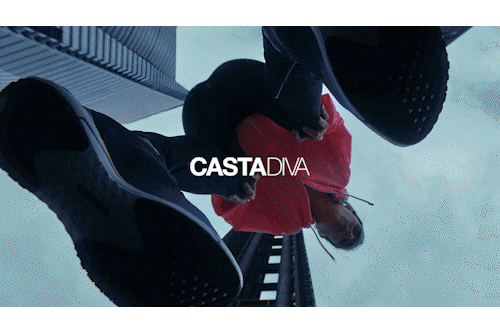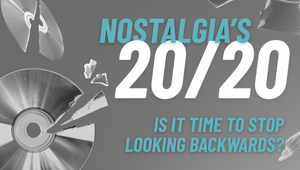
New Talent: Sam Huntley

George Lucas has got a lot to answer for. Like countless other little boys and girls, an encounter with Star Wars left little Sam Huntley obsessed with filmmaking. The force has definitely remained with Huntley, his documentaries Zoomer and Polish Your Shoes have gone on to win awards on the international festival circuit. His latest short, Tibs proves a welcome vindication for dog lovers everywhere. It proves once and for all that cats really are sinister wee bizzums.
LBB> Can you remember the first time you got behind a camera?
SH> I was studying graphic design in Brighton and creatively I was having a really bad time. I had always wanted to make films and made that clear before I started the course. I was lead to believe that it was a really diverse course and there would be loads of opportunities to experiment with moving image and make films, but in reality it was the complete opposite.
By the third year it had got to the point where I was hardly producing any work and was worried that I was going to finish the course with nothing to show for it.
So, I bought a miniDV camera and started teaching myself how to edit - to make sure I would have something to show for my time there. The first thing I ever shot involved a friend of mine running around various dimly lit parts of Brighton at night - I can’t remember the exact ‘storyline’, if there was one, but I’m pretty sure it was terrible. I keep thinking about trying to find the tape, but I can’t face the embarassment.
I do remember feeling this massive pressure when I was making it. Film had always been what I wanted to do, so I suddenly had this overwhelming fear that if I wasn’t any good at it, my life was fucked.
LBB> When did you first decide that you wanted to be a director?
SH> At a really young age. Cliché I guess, but I was a massive Star Wars fan, so that’s predominantly where my love of film came from. I probably didn’t even know what a director was back then, but I remember seeing American Grafitti with George Lucas’s name on it. I found it a bit confusing as I had only ever associated that name with Star Wars. That was the point when I discovered that ‘director’ actually existed. I bought some books about him, and from there I started looking at and discovering other directors and their work.
LBB> Where are you from – and do you think your background or upbringing has in any way influenced the films that you make?
SH> I’m from London. My mum and dad are both hairdressers, so I’m pretty sure that hasn’t had any particular influence on my work. I come from a big working class family though - I think that has been important.
The first thing I ever made when I finished university was a short documentary called ‘Polish Your Shoes’, which was about my grandfather and his life in Islington, North London. Growing up, I would constantly hear family stories from ‘years ago’. Many of them were about my grandfather so that’s where the idea for the film came from. It went on to win a few awards so I continued making documentaries. That was never really my plan, I’d always seen myself making a totally different kind of film, but now I’m really glad that it happened… I feel that it helped me to identify and develop my visual style.
I think I’m also drawn to a certain kind of character. You can see a pattern through a lot of my work – most of my documentary films are about ordinary, working class people. That is definitely linked to my background. I’m also consciously trying to develop more narrative work. I’ve started writing and I think that any scripts I develop will involve similar characters/themes to those featured in my documentaries.
LBB> What kind of kid were you?
SH> I was really shy. Not with my friends or people my own age, just with adults. I’m not really sure why, maybe it was to do with coming from a big family. I remember at the end of family parties having to kiss everyone goodnight. There were so many people it seemed to take forever. Maybe something developed out of that, but I definitely have a lot of memories of my mum telling me off because I wouldn’t speak to people or call them by their names - that was probably interpreted as rudeness.
LBB> What is it about filmmaking that so appeals to you as an artform? Many of your films are documentaries – why do you enjoy making films about real people?
SH> I just love the freedom it gives you - there are so many different ways of telling a story. I also like to edit my own stuff where possible. That’s my favourite part of the whole process - making a series of images fit together to tell a story.
A friend of mine is a photographer and I have said to her many times that I think she should start making films. I think she would be good at it, but she always says that she loves telling a story in a single image; she just doesn’t think sequentially. I absolutely love photography but I think I would find the constraint of only having one image really restrictive.
I enjoy making films about real people because I like observing the little nuances that make them different. That’s what fascinates me – why are people the way they are? What has made them that way?
There is that essence of truth and authenticity that you can capture in a documentary but is very difficult to replicate in a scripted film. It’s why you have great actors, scriptwriters and directors. That’s something I’m looking forward to develop.
LBB> Your feature-length documentary Zoomer about curiosity shop owner Mary DeBoutez Zellmer-Fenoglio certainly earned a lot of media coverage. Why do you think the film appealed to so many people?
SH>I think it was because of Mary. She is one of the most amazing, unique and charismatic people I have ever met. I guess people just enjoyed watching her.
I also tried to give the film quite a distinctive look to make it stand out. However, more than anything, I just wanted to keep it as simple as possible - a really intimate, personal portrait film. I think people can kind of relate to Mary’s story, because she is such an emotional person and really wears her heart on her sleeve.
LBB> Your latest film, Tibs, is a fairly sinister affair! How did the idea come to you? Are you a cat person?
SH> The idea came about through a conversation over a beer with a Andy Preston, who is a friend and creative at Euro RSCG. We had been talking for a while about shooting something together but hadn’t got round to it for one reason or another.
Neither of us are cat people. I can’t speak for Andy, but I’ll freely admit that I’m slightly scared of them. Andy had an idea of a cat that goes out and steals things for its owner – a ‘cat burglar’. I really liked it, but we realised it might be a tricky thing to shoot, logistically and on a tight budget.
We both have friends who are always moaning about their cats bringing dead mice into the house, yet they never have the heart to tell them off. We decided to focus the idea in that direction - it’s basically about how an animal can misinterpret an owner’s affection.
There are a lot of cat lovers out there and it seemed to be such a common problem, so we hoped that people would relate to the idea. Andy rewrote the script, based on those thoughts.
LBB> How would you characterise your creative process? Are you a scrap-booker? Do you do lots of research beforehand or are you fairly spontaneous?
SH> I’m definitely a scrap-booker. That probably comes from college because we were encouraged to use them.
I think I’ve actually had the same big notepad for a number of years now. These days I tend to just keep visual references on my computer, which is a shame in a way. The notepad just consists of a lot of random scribbles and thoughts. To the untrained eye it probably looks like a slightly psychotic mess, but it works for me.
I definitely like to be prepared - I do a lot of research beforehand. Sometimes you just know an idea will work, so it evolves quite naturally. Generally it takes a long time for me to convince myself that an idea is good enough for me to invest a lot of time and effort into. I want to make sure that it’s going to be worth it.















